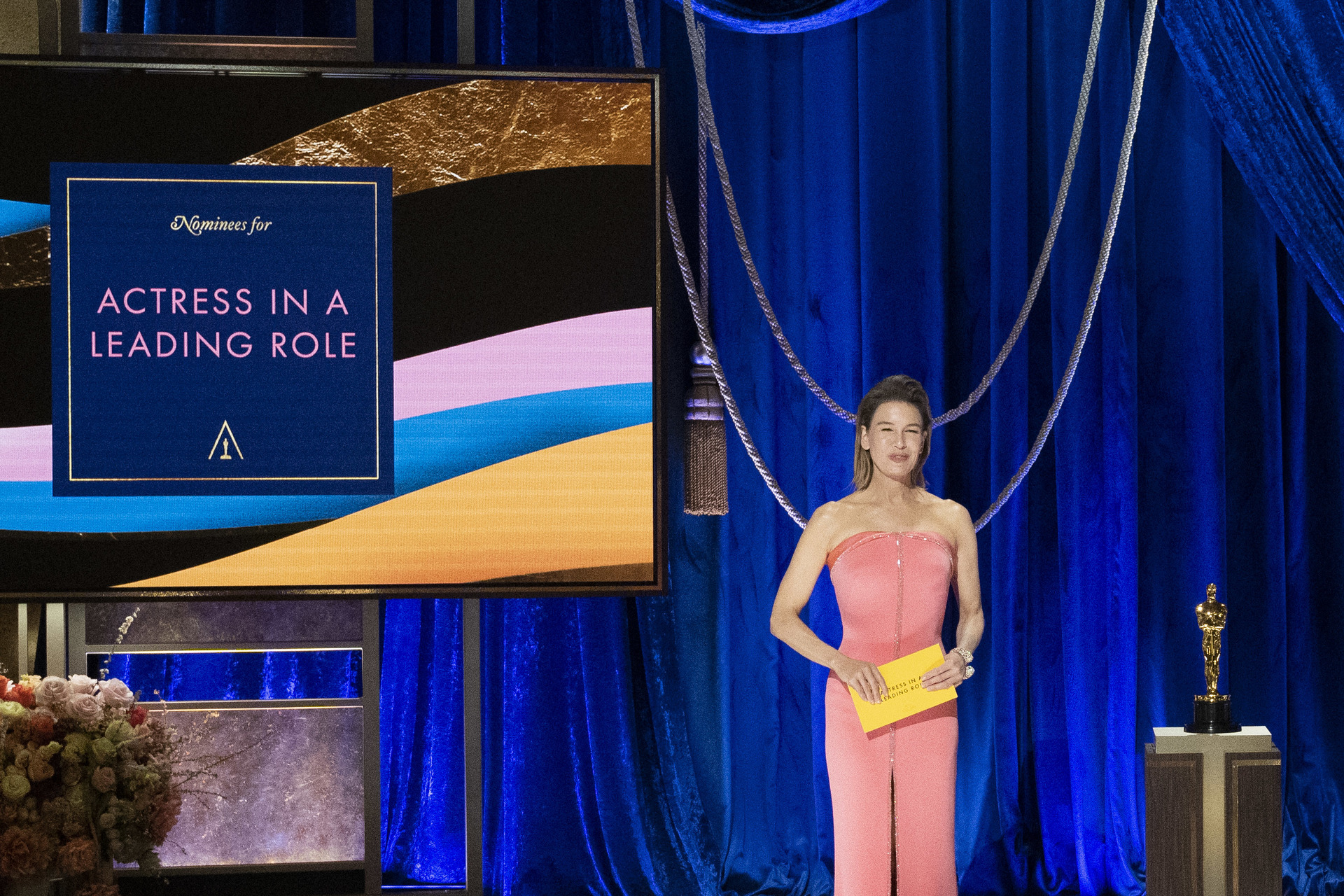On Sunday, April 25, the 93rd Academy Awards took place in Los Angeles.
The organizers decided to move away from the practice that has developed over the past year, when such events were held remotely, and the laureates were connected to the broadcast via Zoom.
The Oscars were organized in an almost traditional format, taking into account a number of restrictions caused by the coronavirus pandemic.
However, despite all the efforts of the production team led by Steven Soderbergh to make an exciting show, this year's broadcast on ABC channel showed the lowest ratings in history, according to Variety.
It was watched by 9.85 million US residents, which is 58.3% less than the audience of the 2020 ceremony.
Then the broadcast attracted the attention of more than 23.5 million Americans.
At that time, this result was also the worst.
At the same time, the share of viewers aged 18 to 49 - the main percentage of the show's audience - decreased even more, by 64.2%.
The drop in Oscar broadcast ratings reflects a trend in recent years.
In 2016, the ceremony on ABC was watched by 34.4 million viewers, in 2017 - 32.9 million, in 2018 - 26.5 million.
In 2019, interest in the Oscar increased slightly, more than 29.5 million people watched the broadcast.
However, she showed the second worst result in the history of the award at that time.
Last year, the Oscar rating continued to fall.
According to a poll published on the Variety portal, the main reason why viewers did not watch the Academy Awards was the choice of nominees: 57% of respondents said they were not interested in films and actors applying for awards.
29% of respondents did not want to watch the broadcast because of boring or didactic speeches of the laureates, 24% considered the event too long, according to 19% of respondents, the ceremony does not matter during the coronavirus pandemic.
Other reasons cited by the respondents were the absence of popular presenters, controversies related to the topic of racism, and unwillingness to follow the broadcast in April instead of the traditional Oscar February.
The study also found that those interested in the Oscar results prefer to watch the most interesting parts of the show on social networks and news outlets, rather than on the air.
globallookpress.com
© Todd Wawrychuk
In an interview published on The Hollywood Reporter's website in mid-April, Steven Soderbergh stated that the organizing team did not focus on ratings as they cannot be controlled.
Instead, the producers sought to release an interesting show in their understanding.
The TV crew was faced with the task of holding the event in compliance with all sanitary standards in a traditional format and handing the awards to the laureates.
“We want this night to be special for the nominees, we want the winners to have the opportunity to get up, get an Oscar and enjoy this moment.
Although the year was incredibly difficult, we did not want to deprive them of this experience, ”- said Soderbergh.
However, the organization of the ceremony received many negative reviews.
The audience noted that without the presenter's musical numbers and jokes, the event turned out to be unusually boring.
Even more dissatisfaction was caused by the unusual order of announcing the awards - this time the winners in the acting nominations became the last to be announced, and not the winner of the Oscar for Best Picture.
According to The Hollywood Reporter film critic Daniel Feinberg, there were many interesting things at the ceremony, for example, a new venue and some performances by the laureates. And in general, in his opinion, the broadcast turned out to be more interesting than the Golden Globe ceremony, but the audience will most likely remember the shortcomings of the show.
“We will remember long periods of suffocating seriousness, an oddly accelerated memorial segment, Brian Cranston's almost endless speech to a film and television industry charity, and Tyler Perry's second honorary award in less than a year from major awards that never will give him real awards for his television and film projects. We will also remember the alarming and strange decision to present the main award of the evening earlier (it should be -
RT
), then go on a commercial break to stir up interest ... in the last award that was supposed to go to the young actor who left us, and instead left the deserved elderly a star who was simply absent from the ceremony, ”notes Feinberg.
Variety author Caroline Framke was also pleased with the new site.
The critic believes that at the Union Station, where the guests of the ceremony were staying, they managed to create an unusual, more intimate atmosphere, typical not for Oscars, but for a cabaret.
At the same time, Framke criticized the performances of the artists naming the nominees, and she called the situation with the procedure for announcing the laureates absurd.
“It was extremely strange to realize that the award for the best director would be presented in the first half of the ceremony, and even more surprising was the decision not to complete the award for the best film. (As a result. -
RT
), when Chadwick Boseman lost the photographs to Anthony Hopkins, who received his second Oscar in absentia, it was, on the one hand, truly unexpected, and on the other, completely absurd. The Oscar producers should know better than anyone else that no win is guaranteed here, ”says Caroline Framke.
In her opinion, the organizers of the ceremony tried to find unexpected solutions wherever possible. Some of them have been successful, others have not. At the same time, as the author writes, “the changes in the ceremony that did not produce any results were in no way connected with the pandemic. The change in the order of the presentation of awards, on which (the organizers -
RT
) of the show
insisted
, was nothing more than an end in itself. "

